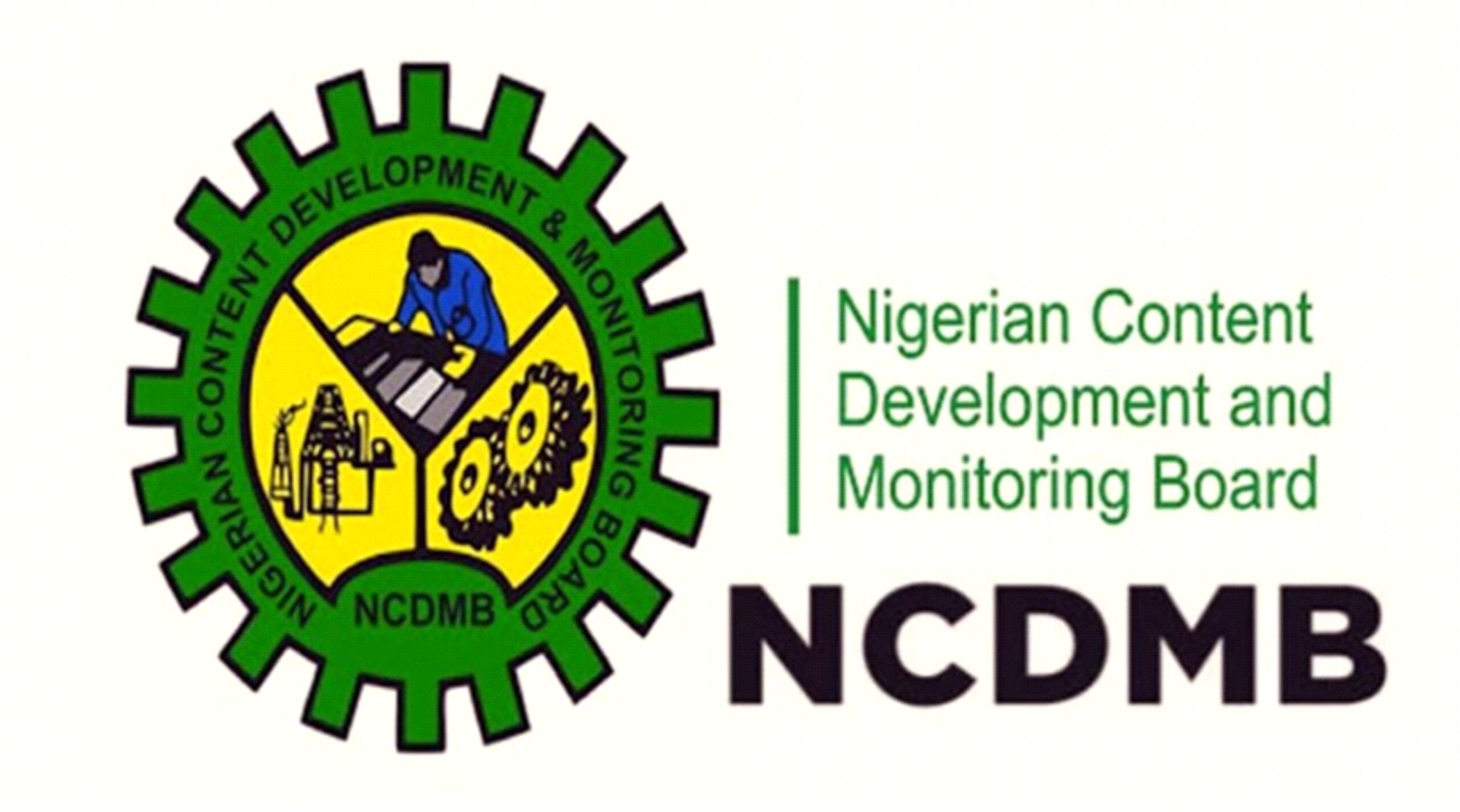Business
NCDMB Hails Tinubu’s Oil Sector Executive Orders

The Executive Secretary of the Nigerian Content Development and Monitoring Board (NCDMB), Engr. Felix Omatsola Ogbe, has commended President Bola Ahmed Tinubu over the announcement of three Presidential executive orders.
The orders, he said, are aimed at providing incentives in the Nigerian oil and gas industry, encourage new investments in the sector, reduce contracting costs and timelines, as well as promote cost efficiency in local content requirements.
According to a statement from the NCDMB’s Directorate of Corporate Communications and Zonal Coordination, the Executive Orders are the “Oil and Gas Companies (Tax Incentives, Exemption, Remission, ETC) Order 2024”, “Presidential Directive on Local Content Compliance Requirements, 2024 (EO 41)”, and the “Presidential Directive on Reduction of Petroleum Sector Contracting Costs and Timelines, 2024 (EO 42)”.
Speaking at the Nigerian Content Tower, headquarters of the NCDMB in Yenagoa, Bayelsa State, the Executive Secretary stated that the policy directives had reinforced the implementation of the Nigerian Oil and Gas Industry Content Development (NOGICD) Act and codified the Service Level Agreements (SLA), which the NCDMB first introduced in May 2017, to fast-track approvals for the Nigeria LNG Limited Train 7 project, before expanding it to the entire industry after signing a Memorandum of Understanding (MoU) with the Nigerian National Petroleum Company Limited (NNPC Ltd), and five international oil-producing companies in September 2023.
Ogbe clarified that the Presidential Executive Orders did not whittle down the powers of the NCDMB or abrogate the schedule of the NOGICD Act.
He said, rather, the Executive Order 41 mandates the Board to ensure the patronage of local companies with domiciled proven capacities and capabilities to achieve cost competitiveness and project delivery within schedule.
He also noted that Executive Order 42 re-emphasized NCDMB’s obligation to fast-track approval processes as required by the SLA and section 23 of the NOGICD Act, which mandates the Board to review projects’ documentation within 10 days and advise the concerned operating company.
The Board’s helmsman assured that the NCDMB would comply with the terms of the Presidential Executive Orders, insisting that the Board had always been pragmatic with its implementation of the NOGICD Act, and mindful of the cost competitiveness of projects and schedules.
He also stated that the objectives of the Executive Orders and the SLAs were directed to shorten the oil industry’s contracting cycle to six months or less, engender speedy development of new projects, contribute to increased oil production, and improve the national economy.
The Executive Secretary expressed delight that President Tinubu had put his stamp of authority on the noble objectives of the SLAs, and commended him for acknowledging the giant strides recorded in Nigerian Content development.
Particularly, he noted the impressive capacities built by local oil and gas service companies in key areas of the industry and the substantial benefits that had accrued to the Nigerian economy and her citizens through local content implementation.
The NCDMB boss assured that the agency would continue to serve as a business enabler and maintain the recognition conferred by the Presidential Enabling Business Environment Council (PEBEC), which awarded the Board the most efficient agency amongst all Federal Government’s MDAs in 2022, and the PLATINUM rating by the Bureau for Public Service Reforms in recognition of the self-imposed reforms of the Board’s processes.
Ariwera Ibibo-Howells, Yenagoa
Business
Eazipay Offers Zero-Interest Loans To 150,000 SMEs, Employees

With a mission to ignite growth, encourage business continuity and help businesses and employees thrive, Eazipay is gearing up to propel the dreams of 150,000 SMEs and employees to new heights through her relief fund.
Gone are the days of financial constraints and stifled dreams. With Eazipay’s support, SMEs and employees alike can bid farewell to limitations and embrace a world of endless possibilities.
Whether it’s start up, business expansion or personal development, Eazipay is here to make dreams come true.
The mind-blowing initiative, which kicked off this month, would end in December, and will also offer a range of perks and benefits designed to put a smile on the faces of SMEs and employees alike.
From exclusive discounts to various advisory services and beyond, Eazipay is committed to spreading happiness and creating lasting impact in people’s lives and to the growth of businesses.
The technology company which offers products and services that range from payroll management to IT/Device management and assessments, “Eazipay isn’t just providing financial support but also unleashing a wave of growth and prosperity for SMEs and employees across the nation.
“Interested businesses and individuals can take part in this initiative directly from the Eazipay website: www.myeazipay.com”.
Business
SMEs Critical For Sustainable Dev – Commissioner

The Commissioner of Finance, Lagos State, Abayomi Oluyomi, has described Small and medium Enterprises (SMEs) as a critical engine for sustainable development in any economy.
He said this recently at the 10th anniversary of the Alert Group Microfinance Bank and the opening of their new head office in Lagos.
According to the National Bureau of Statistics, SMEs accounted for about 50 per cent of Nigeria’s gross.
He commended the positive impact of the Alert MFB as it empowers SMEs in the State.
“Alert MFB in the past 10 years has been at the forefront of empowering SMEs in Lagos State, disbursing over N30bn in loans to over 30,000 individuals having small to medium businesses over that period, which is quite remarkable”, he said.
Speaking, the Group Managing Director of Alert Group, Dr Kazeem Olanrewaju, revealed that the financial institution commenced business in 2013 as a microfinance bank.
“We started this journey in 2013 and it has been expanding. Today, they have about 10 branches across Lagos. They have supported well over 30,000 clients and have disbursed over N30bn.
“The company has been profitable since the second year. Looking at the market and the available opportunity, the Alert MFB board decided to come together to establish a Microfinance Institute (MFI), which is the Auto Bucks Lenders”, Dr. Olanrewaju said.
The GMD further stated that the company was focused more on supporting businesses and small and medium enterprises.
“The loan to support business represents over 98 per cent. The consumer loans you will see are the ones given to entrepreneurs. So, the area of focus of Alert MFB and Auto Bucks Lenders is to support businesses across the country.
“With the establishment of Auto Bucks Lenders, we have the opportunity to also do business outside Lagos. So, presently, we have offices in Ogun State and Oyo State. We intend to go to every part of Nigeria to support what we are doing”, he declared.
Business
Retailers Explain Price Drop In Cement Cost

The cement market, in the last couple of weeks, has seen a significant turnaround with prices tumbling from between N10,000 and N15,000 per 50kg bag to between N7,000 and N8,000.
The sudden rise in the prices of cement and other major building materials in February this year upsets the construction industry, especially in real estate, where many developers were forced to abandon building sites.
A recent market survey conducted by The Tide’s source in different locations across the country confirmed a price drop, ranging between N7,000 and N7,500 per bag, though BUA cement is selling for N7,500 to N7,800 per 50kg bag, depending on location.
Both entrepreneurs and major distributors who were interviewed, explained that the price drop is due to low demand and government’s intervention.
At the peak of the price hike, the Federal Government called a meeting with major producers where it was agreed that a bag of cement should be between for N7,000 to N8,000, depending on location.
But the producers did not comply with this agreement immediately, followin which “Nigerians stopped demanding for cement; many project sites were abandoned as developers sat back and waited for the prices to come down.
“So, what has happened is an inter-play of demand and supply with price responding, which is Economics at work”, Collins Okpala, a cement dealer, told the source in Abuja.
In the Nyanya area of the Federal Capital Territory, a 50-kg bag of Dangote cement now sells for between N7,000 and N7,500, while BUA cement sells for between N8,500 and N9,500, down from between N11,000 and N12,000 respectively.
In Lagos, the product has seen significant price drop too. In Ojo area of the state, Sebastin Ovie, a dealer, told our reporter that what has happened is a crash from the January price, attributing the crash to low demand and stronger naira.
“The current price of the product is between N7,000 and N7,500 per 50kg bag, depending on the brand. This is a significant drop from the average of N12,000 which most dealers were selling in February and March”, he said.
A dealer in Agege area of the state who identified himself as Taofik Olateju, told the source that sales are picking up due to the drop in price.
He recalled that Nigerians at a point stopped buying due to the high price of the product at N15,000 per bag.
“I am sure most dealers ran at a loss then because we had mainly old stocks which we wanted to offload quickly”, he said, confirming that the product sells for between N7,500 and N8,000, depending on the brand and the demand for the brand.
Continuing, Olateju noted that “because the naira is now doing well against the dollar, it will be unreasonable for manufacturers to continue to sell the product at the old prices. I also believe that the federal government’s intervention and the threat to license more importers may have worked, leading to the reduction in price”.
In Enugu, the source reports that the product sells for between N7,200 and N7,500 depending on the brand and location.
“This is a city where the price of a 50kg bag went for as high as N12,000 and N13,000 in some cases in February and March”, Samuel Chikwendu said.
He added that the prices of other building materials, especially iron rods, have also dropped considerably which is why, he said, activities are picking up again at construction sites.
The story is slightly different in Owerri, the capital of Imo State, where Innocent Okonkwo told the source that low demand was also driving the price drop, adding that a 50kg bag was selling for N9,000 on the average in the state.
Sundry market observers are optimistic of further price reductions, but they remain cautious as manufacturers, wholesalers, and retailers continue to play critical roles in setting prices for end-users.
They lamented, however, that despite Nigeria’s status as one of the largest producers of cement in Africa, the price of the product continues to rise, particularly in the face of high inflation impacting the building materials market generally.
Okpala in Abuja highlighted the variations arising from direct sourcing from manufacturers versus procurement through dealers, with traders holding old stocks selling products at prices ranging from N8,500, N8,300 to N8,000 per bag.
Lucy Nwachukwu, another dealer in Abuja, said the significance of procurement volume in determining cement costs, noting that stability in prices has been observed over the past month, with the product retailing for between N7,000 and N7,800 depending on the brand.
In Port Harcourt also, a customer, Daniel Etteobong Effiong, said the price goes between N7500 to N8500, depending on the brand and the location one is buying from.
-

 Retrospect5 days ago
Retrospect5 days agoFubara Restates Commitment To Transparency In Governance
-

 Niger Delta5 days ago
Niger Delta5 days agoNDDC Completes 25.7km Ogbia-Nembe Road Project
-
Niger Delta1 day ago
C’River Declares NBS Child Labour Ranking Unrealistic
-

 Business24 hours ago
Business24 hours agoSMEs Critical For Sustainable Dev – Commissioner
-

 News5 days ago
News5 days agoWe Operate Transparent Accounting System
-

 Featured1 day ago
Featured1 day ago118 Inmates Escape As Rainstorm Destroys Niger Prison
-
Politics1 day ago
Monarch Cautions Against Divisive Politics, Declares Support For Fubara
-
Sports23 hours ago
AFN Lists Strong Squad For Bahamas Relays

